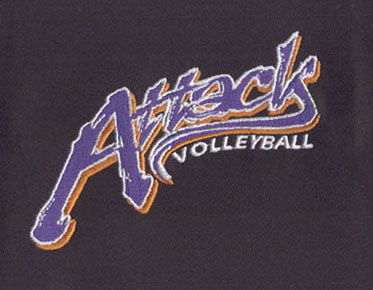5 Simple Steps for Choosing The Right Embroidery Fonts
Embroidery is so popular that many
people want to learn about it. You can learn a lot about embroidery by reading
books and watching videos, but you need someone who can answer your questions
about embroidery font design and embroidery digitizing. So if you have questions about machine embroidery, embroidery
font design or digital embroidery, I assure you that when you read the end of
this article, you will have more ideas.
That was a past time. You used to
embroider or other patterns on clothes, right? Here comes the new idea that
embroidery is done digitally. People search the Internet for digital images
they are interested in, and then embroider the selected images on your clothes.
Digitizing embroidery
Machine embroidery is an embroidery
method in which a sewing machine or embroidery system is used to create designs
on textiles. All of you will encounter a problem in understanding what digital
embroidery is. Create mosaic images from computer controlled files. It is
arranged by a software called SewArt. It converts graphics into stitch files
that can be read by the sewing machine. The whole process is called digital
embroidery.
The Best Machine for Digitizing
Embroidery
This type of embroidery uses different
machines. The best of these are:
Yanomei MB-4S
It is the first home computer that
uses four needles to help you set up a task, and then continues to perform
another task when the machine completes the first task. It is mounted directly
on the mats of home computers and more powerful industrial machines.
Singer XL-580
Computers are an endless hoop, which
ensures that you can work on the boundaries of the project without worrying
that they will become hollow like more traditional computers. Hands free tripod
means hands are not even on all materials.
Janom Horizon Memory Process
Large touch screen displays are
optimized to run smoothly through real-time PC access, and can even be edited
and designed quickly.
Tips for choosing the best embroidery
font
Font size is the main factor
If you want to make text as small as
it is, you must be picky about fonts. Complex, stylized, and ornate fonts don't
work. If you want to create a design larger than a quarter inch, you have
limited choices. Lower case letters provide more specific requirements, such as
finer threads.
When it comes to large designs, there
are different challenges. The most important character is the column size. Pay
close attention to and select a font that fits the correct column width.
Use the correct embroidery settings
The margin of content, font size and
push/pull factors must be considered. The horizontal cylindrical stitch
stretches and pushes out the material. On the other hand, vertical cylindrical
stitch pulls the stitch point and material together. Keep these factors in mind
and adjust when choosing an embroidery font.
You need to consider verticality and
curve, otherwise if the fabric does not have enough push and pull resistance,
it may cause holes and tears. This common mistake can break the design. Holes
are another common problem. The easiest way to avoid this problem is to choose
a safe font. There is also an option to adjust your font selection to compensate
for annoying factors.
Free fonts on the Internet
Modern embroidery technology opens up
many opportunities for different fonts and designs. Most professional software
also allows people to export and share fonts online. Just like the general
fonts used for typing, there is a large database of embroidered fonts created
by various professionals and amateurs. You can also find various custom font
designs on embroidery blogs and craft specific websites.
If the font you have to choose is not
attractive, then it is time to go online. If you do a lot of embroidery or plan
to do a lot of embroidery, regularly searching the Internet will help ensure a
unique design.
Using embroidery software
With the development of embroidery
machines and software, the limit of embroidery ability has also been developed.
This makes font selection much less stressful. Modern embroidery software
allows users to easily check, test and edit fonts. You don't have to guess or
learn many complicated embroidery factors, just change the data on the screen.
You can also create your own
embroidery fonts, or save modified versions of existing favorites. You can also
export them, share them with the world, and save them for later use.
Like any other hobbyist or amateur,
embroidery enthusiasts have formed an online community. These websites and
social media pages are best suited for finding ideas, suggestions, and
constructive feedback. Better yet, you can seek help with specific designs and
get tips from experienced embroiderers. Because sewing fonts can be a bit
challenging, there are also many existing threads to read for advice.
You can also find other discussions about
embroidered fonts, such as:
Which fonts are safe and effective?
What font is suitable for what type of
embroidery design?
Which fonts are suitable for which
machine?
Visiting the embroidery forum will
give you a lot of useful information and inspiration.
Now that you have finished this
article, you will no longer have any other thoughts or confusion about how to
choose the best embroidery font design or any problems surrounding digital
embroidery. You only need to follow a few steps to enter the best fashion
state, and you can start!



